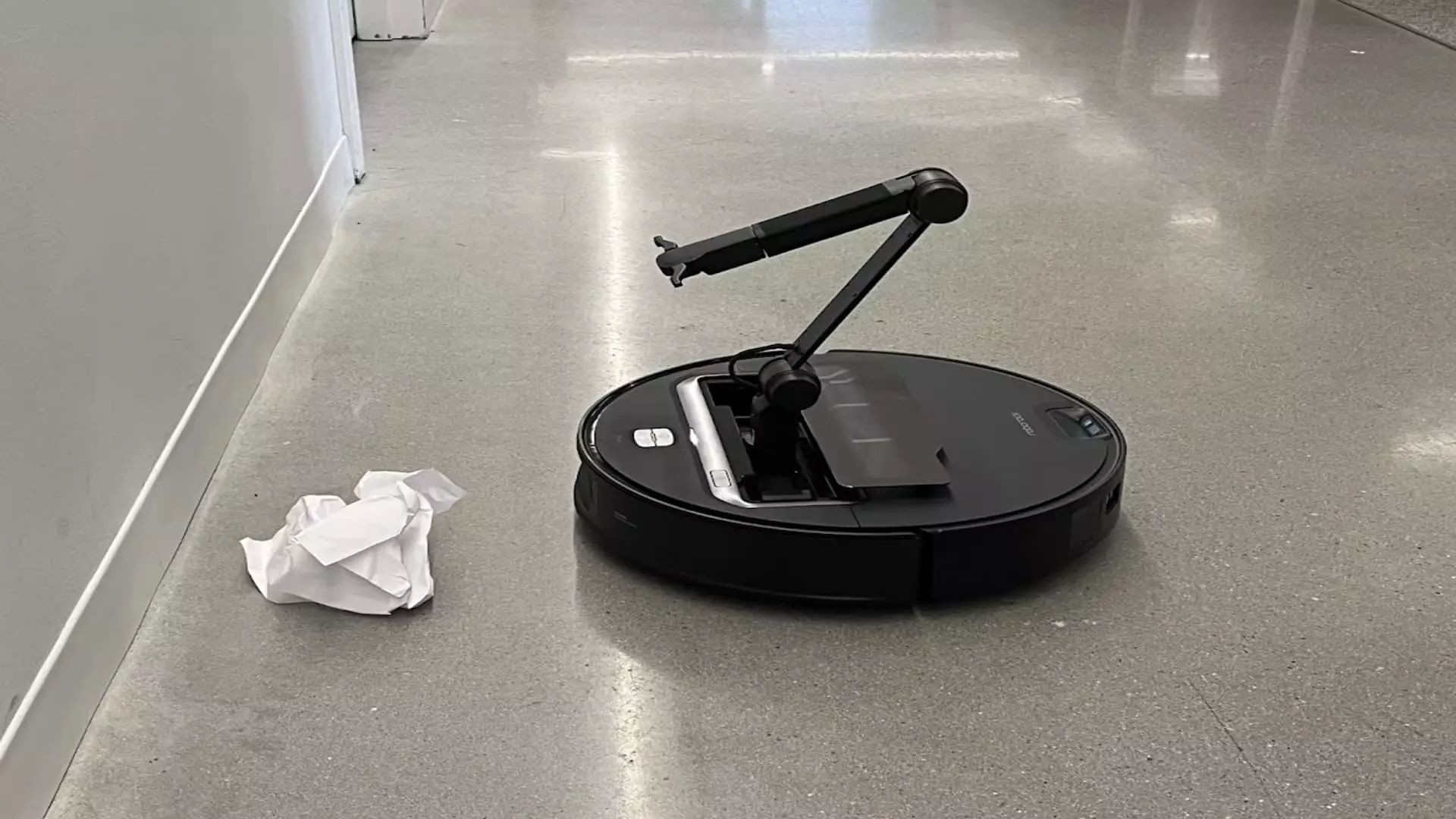In an age where artificial intelligence (AI) is becoming increasingly prevalent, the home appliance industry is poised for transformation. Leading this charge is Roborock, a Chinese company renowned for its innovative robot vacuum cleaners. Recently, they introduced a groundbreaking model, the Saros Z70, distinguished by its unique folding arm mechanism designed to tackle household obstructions like socks and small towels. This advancement symbolizes not just a technological leap forward but also reflects ambitions that these intelligent devices will become indispensable household staples, akin to washing machines, within the next few years.
President Quan Gang’s insights into the market trajectory indicate a forthcoming era where AI will arguably take center stage in enhancing domestic chores. He stated in a recent interview that the burgeoning capabilities of AI herald a new beginning, particularly in the context of robotic cleaning solutions. Such statements hint at a broader transformation within the sector, where robotic vacuum cleaners could capture significant market share alongside traditional appliances, positioning them as household essentials.
The Roborock Saros Z70, which is expected to hit global markets soon, is emblematic of this AI integration. The device utilizes advanced artificial intelligence to identify and navigate around various objects, including lightweight items such as clothing and towels, weighing less than 300 grams. The introduction of such intelligent features marks a significant milestone in the evolution of robotic vacuums, reinforcing the idea that these machines are not mere luxury items but rather practical solutions to everyday cleaning frustrations.
These developments come on the heels of the ongoing Consumer Electronics Show, an event renowned for showcasing cutting-edge technology and innovation. Roborock’s timely announcement highlights both its commitment to keeping pace with technological trends and its aspirations in the competitive landscape of the smart home market. Unlike its predecessors, which merely vacuumed and mopped, the Z70 is set to redefine interactions with household appliances by solving real-life obstacles in improving user experience.
Since its inception in 2014, Roborock has steadily expanded its footprint, particularly in key markets like the United States, Germany, and South Korea. However, despite the growing acceptance of robotic vacuums, their penetration rates remain relatively low—hovering just above 10% in developed nations. Quan acknowledges this underwhelming figure as both a challenge and an opportunity for growth. The company perceives the integration of AI technology as a pivotal factor in overcoming market barriers and driving adoption rates higher.
The competition within the industry is fierce, signaled by the emergence of new models and brands that challenge Roborock’s position. The robot vacuum landscape has seen vigorous contenders, such as the iRobot Roomba and other emerging players offering similar features, including self-emptying mechanisms and robust navigation systems. Notably, Roborock’s S8 MaxV Ultra has garnered acclaim for its “hands-free” capabilities, setting a high bar for competitors. Reviews from established technology platforms not only commend the efficiency of these machines but also highlight their evolving features as a game-changer in household maintenance.
Roborock’s commitment to R&D is another facet of its strategy in navigating the competitive market. The company currently invests a notable proportion of its operating revenue into research—9.1%—reflecting an increase in focus on innovation amid this fast-paced environment. With plans to enhance its research team significantly in the coming years, Roborock is positioning itself as a pioneering force that is not just reacting to market trends but actively shaping the future of household cleaning technologies.
Emerging from a well-established foundation, Roborock’s foresight in identifying the significance of AI early on has paved the way for sustained innovation. By maintaining a dedicated workforce focused solely on technological advancement and minimizing distractions from product deadlines, the company ensures a continuous pipeline of pioneering solutions to enrich consumer experiences and tackle real-world cleaning challenges.
With innovations like the Saros Z70, Roborock is primed to lead the charge toward a smarter living environment. As the capabilities of AI continue to replace traditional manual methods, the dynamics of home care will evolve, making robotic vacuums integral to everyday life. As companies enhance their offerings and consumers grow more accustomed to these innovations, robotic vacuums could very well transition from being luxury items to being regarded as essential household conveniences.
The future envisioned by Roborock and other innovators in the industry paints a picture of a home where cleaning becomes effortless, significantly enhancing quality of life. With artificial intelligence as the backbone of this evolution, the transition toward fully integrated smart homes is no longer a distant dream but a near reality. This forward momentum is likely to attract more consumers and further establish robotic vacuums as critical appliances in a rapidly changing world.

